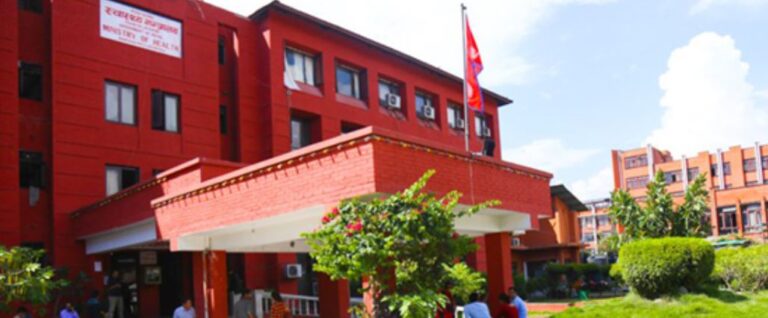
The Ministry of Health and Population on Wednesday requested concerned authorities to strictly implement the precautionary measures against the coronavirus transmission, citing upsurge in COVID-19 cases and identification of the B.1.1.7 variant, a fast spreading coronavirus variant first detected in the United Kingdom, as a reason.
The educational sectors have been requested to implement the measures stringently, as have been the authorities to control the crowd in public vehicles, shopping malls, cinema halls, party palaces, swimming pools, among other public spaces.
Moreover, the ministry has also appealed the operators of night-time businesses — such as restaurants and clubs — to close after 9 pm.
What’s more, the district administration offices across the country have been asked to take actions against those not wearing masks in public spaces in line with the prevailing act.
However, despite all these, district administrations have maintained that they have been failing to enforce the measures owing to the negligence on the part of the general public.
“We have been requesting all and even raising awareness through different means about the importance of safety measures like wearing masks, using sanitisers, maintaining social distance and avoiding crowd, but a majority of the people are still not serious about it,” said Kali Prasad Parajuli, Chief District Officer of Kathmandu.
Officials at different district administrations of the country with whom The Rising Nepal spoke also said that people were not taking the risk of pandemic as seriously as they did during the first lockdown period last year.
“People were following precautionary measures strictly during the lockdown period but no longer. That may be due to the dwindling cases, which was the case until recently. But the cases are rising of late, and if people continue being negligent as they are these days, the consequences can be dire,” said Lalit Kumar Basnet, assistant chief district officer and information officer at Lalitpur District Administration Office.
According to the health experts, authorities need to be more alert this time because the UK-variant virus has now been detected in Nepal.
However, the district administrations informed that they were doing the needful to prevent the cases from escalating.
“We have been continuously launching awareness campaign and have requested the local levels to do so as well. However, many people are still not abiding by the safety measures. We are also thinking of closing night-time businesses after 9 pm,” said Shreenath Poudel, assistant chief district officer and information officer at Kaski District Administration Office. The district administration has banned night-time businesses after 11pm recently.
“However, the business operators argue that they are already struggling to survive because of having to close their businesses at 11 pm. If that time is changed to 9 pm, they will have no option but to go out of business. They have assured us that they will comply with all the government-approved precautionary measures, which is why we have allowed them to open until 11 pm,” said Poudel.
According to the officials, they have been intensifying identification of people showing symptoms of the virus infection and examining them for the virus. The districts bordering India have amplified surveillance along the border area and have setup health desks to screen home-bound Nepalis.
“We might have to start taking actions as per the prevailing acts if the public continue neglecting health safety measures. The administration is in regular talks with the stakeholders to ensure all follow the measures strictly,” said Parajuli.
Source : THE RISING NEPAL






